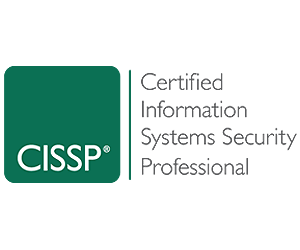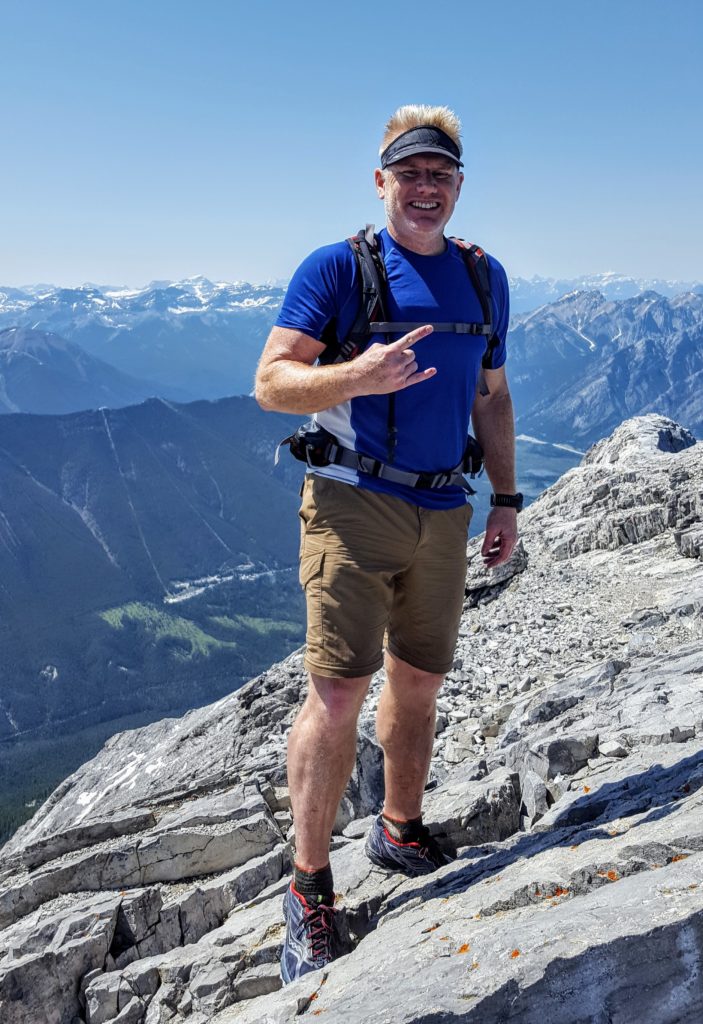 CISSP “boot camp” is just a fancy term for CISSP “training”. Many CISSP training providers use the terms interchangeably. A CISSP “boot camp” has a few distinctions though. Before we dive into these distinctions, let’s take a step back. The term “boot camp” means a “short, intensive, and rigorous course of training“. This definition holds true with CISSP boot camps. Here are the top 5 things to know about CISSP boot camps:
CISSP “boot camp” is just a fancy term for CISSP “training”. Many CISSP training providers use the terms interchangeably. A CISSP “boot camp” has a few distinctions though. Before we dive into these distinctions, let’s take a step back. The term “boot camp” means a “short, intensive, and rigorous course of training“. This definition holds true with CISSP boot camps. Here are the top 5 things to know about CISSP boot camps:
#1 CISSP Boot Camp Purpose
The purpose of the CISSP boot camp is to ready you, as quickly as possible, to pass the CISSP certification exam. That’s it. The outcome you seek is to pass the exam. Many CISSP candidates often lose sight of this objective. It is vital to remind yourself throughout the boot camp why you are there – to quickly learn the material, so you can pass the CISSP exam. The CISSP exam covers tons of cybersecurity topics – it is a mile wide and an inch deep, as they say. A CISSP boot camp is not designed to make you an expert on any topic in the CISSP exam. It is designed to arm you with enough knowledge so you can pass the CISSP exam.
I’ll reiterate – the purpose of the CISSP Bootcamp is to ready you, as quickly as possible, to pass the CISSP certification exam. I’m reiterating because I’ve run into numerous students that want to go down rabbit holes, argue about what’s “right” and “wrong” about a particular topic, etc. The boot camp format is fast-paced, so there’s limited time to go down rabbit holes. There are numerous topics covered in the CISSP curriculum that doesn’t match reality. You have to temporarily suspend your beliefs and “drink the CISSP Kool-Aid” until you pass the exam. After you pass the CISSP exam you can forget the stuff that doesn’t jive with reality.

#2 Immersive Experience
A CISSP Bootcamp provides an environment where the entire focus for the duration of the CISSP training is on the CISSP material. One of the benefits of a CISSP boot camp is this immersive experience. Exam preparation requires focus. It is often difficult to balance work, family, distractions, etc. while trying to prepare for the CISSP certification. A CISSP boot camp provides an environment without distractions, where you can focus on learning the CISSP material as quickly as possible.
Depending on your study habits, you may find it beneficial to travel to a training provider’s location, so you are away from daily life demands. Traveling to the CISSP training provider’s location puts you in an unfamiliar environment, where it is easier to avoid habits that aren’t serving you in your CISSP preparation journey. This allows you to focus entirely on the CISSP material. For instance, a typical day could be like this:
- 9am – 5pm – attend CISSP training at the provider’s facility
- 5pm – 5:15pm – return to hotel
- 5:30pm – 6:30pm – workout at hotel gym
- 6:45pm – 8:00pm – clean up and eat dinner at the hotel or nearby restaurant
- 8:15pm – 11:30pm – study – go over the day’s material and read some of tomorrow’s material. Take practice exams over the material covered during the day.
The bottom line is the CISSP requires a lot of study and practice exam taking. A CISSP boot camp can provide you dedicated time for this. It is up to you, however, to show up disciplined and ready to go.
#3 All-inclusive
CISSP boot camps are often “all-inclusive”. This means various things and prices vary greatly, depending on what comes with the all-inclusive package. The intent is to make your life easier, so all your focus can go towards learning the CISSP material. Typical items that may be included in all-inclusive CISSP boot camps:
- CISSP Exam Fee
- Printed Materials
- Digital Materials
- Study Guides
- Practice Exams
- Drinks and Snacks
- Meals
- Hotel (rare)
- Airfare (rare)
Choose what works best for you, based on your budget. I’ve known people that “travel” locally. They take a CISSP boot camp locally, but stay at a hotel during the week, instead of at home. This gets them out of their normal distractions, saves on airfare, and keeps them close to home, in case of a family emergency.
Do what works best for you. One dedicated and focused week that results in you passing the CISSP exam on the first try is ideal.
#4 Information-Packed

Remember the boot camp definition at the beginning – “a short, intensive, and rigorous course of training”? A CISSP boot camp holds true to this definition. It is like “drinking from a fire-hose” people like to say. There’s so much material to cover that it is a difficult endeavor to digest it all. I recommend studying before you even start a CISSP boot camp. Do some prep work. Ask for the materials in advance. Take a few practice tests.
The more preparation you can do before the CISSP boot camp, the better. It’s no different than attending basic military training, which is a type of boot camp. It is not wise to do this without preparation first, such as getting in physical condition. You will get more out of the boot camp and experience less pain and heartache if you are prepared.
#5 Includes Practice Exams
If you recall, I stated the primary objective of the CISSP boot camp is “to ready you, as quickly as possible, to pass the CISSP certification exam”. One of the best ways to effectively prepare for the CISSP exam is to take practice exams. A CISSP boot camp must include practice exams. It is also a good idea to take some of these practice exams during class times. This provides an opportunity for the class to review the questions and answers together.
One of the biggest mistakes CISSP candidates make is just studying the material and not taking practice tests. You should take as many practice tests as you can get your hands on! It is vital you understand how to dissect questions, eliminate distracting answers, understand “best” answers, etc. The best way to do this is to practice. 50% of your time should be spent on practice exams. The CISSP boot camp instructor should provide context on the material being taught by framing how the material may show up in a CISSP exam question or scenario.
Conclusion
Best of luck on your journey to get CISSP certified. The CISSP certification is the outcome you seek, but remember to take some time to enjoy the journey along the way. It’s not the CISSP certification that matters most, but the pursuit that makes you better tomorrow than today.

Christian at Mt Rundle summit in Banff National Park, Canada.
AUTHOR BIO
Christian Espinosa is Alpine Security’s CEO/Founder and a Cybersecurity Professor at Maryville University. He holds over 25 certifications, including the CISSP, CCISO, and PMP. Christian is a US Air Force veteran with a BS in Engineering from the US Air Force Academy and MBA from Webster University. Christian holds multiple patents on cybersecurity attack and defense. Major recent projects include penetration testing and assessments of commercial aircraft, medical device penetration testing, and numerous incident response projects. When Christian isn’t protecting us from cybercriminals, he climbs mountains, travels the world, teaches outdoor wilderness survival, and competes in Ironman triathlons.




